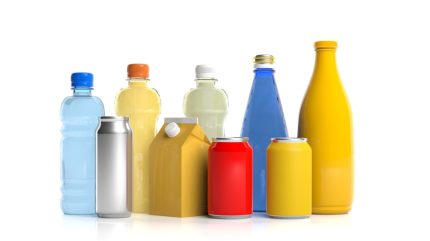
The beverage packaging industry is undergoing significant transformation, driven by sustainability goals, technological advancements, and evolving consumer preferences, according to the 2025 Beverage Industry Packaging Trends report by PMMI, The Association for Packaging and Processing Technologies.
The report highlights a shift towards flexible and compostable materials, the integration of smart packaging technologies, and increased investment in automation to meet these emerging demands.

Discover B2B Marketing That Performs
Combine business intelligence and editorial excellence to reach engaged professionals across 36 leading media platforms.
Shift towards sustainable and flexible packaging materials
Consumer demand and regulatory pressures are prompting beverage companies to explore more sustainable packaging options. Flexible plastic packaging is expected to see substantial growth, despite current recycling infrastructure limitations.
Efforts are underway to improve recyclability through the use of mono-materials and increased post-consumer recycled content.
Compostable paper and plastic materials are also gaining traction, with projections indicating a significant increase in their use by 2032.
However, the current composting infrastructure is insufficient to handle this anticipated growth, necessitating further development in waste management systems.

US Tariffs are shifting - will you react or anticipate?
Don’t let policy changes catch you off guard. Stay proactive with real-time data and expert analysis.
By GlobalDataIntegration of smart packaging technologies
Advancements in smart packaging are enhancing consumer engagement and product transparency. Technologies such as QR codes and Near-Field Communication (NFC) tags are being utilized to provide detailed product information, including ingredient sourcing and sustainability practices.
These features cater to the growing consumer interest in product traceability and authenticity.
Additionally, innovations like battery-free, stretchable packaging equipped with sensors are being developed to monitor product freshness and quality in real-time, potentially extending shelf life and reducing food waste.
Increased automation in packaging processes
To accommodate the evolving packaging landscape, beverage companies are investing in automation to enhance efficiency and meet production demands.
Automation is being applied across various stages, including filling, sealing, labelling, and quality control, enabling manufacturers to adapt to new packaging formats and materials.
The integration of artificial intelligence and machine learning is further optimizing operations by enabling predictive maintenance and data-driven decision-making, thereby reducing downtime and improving overall productivity.
These developments indicate a concerted effort within the beverage industry to align packaging practices with sustainability objectives, technological advancements, and consumer expectations.





